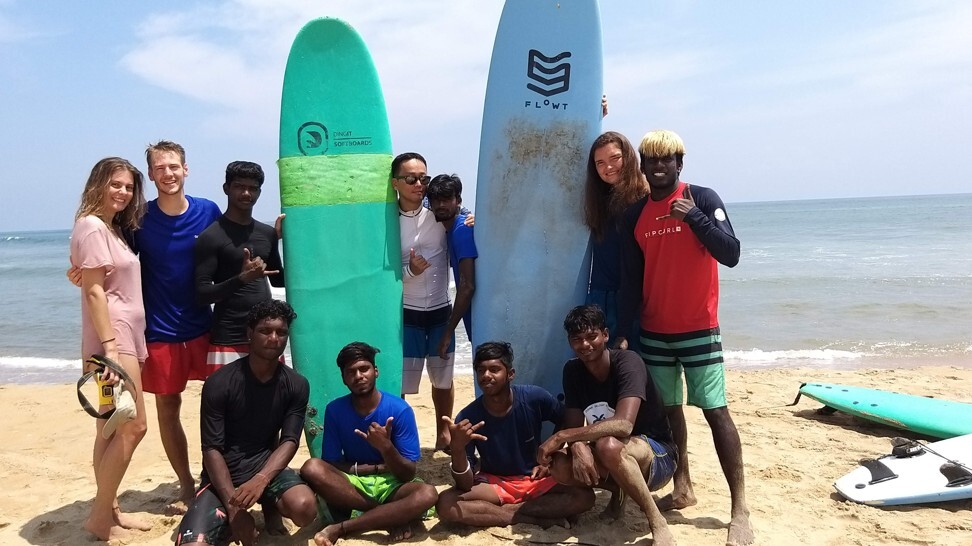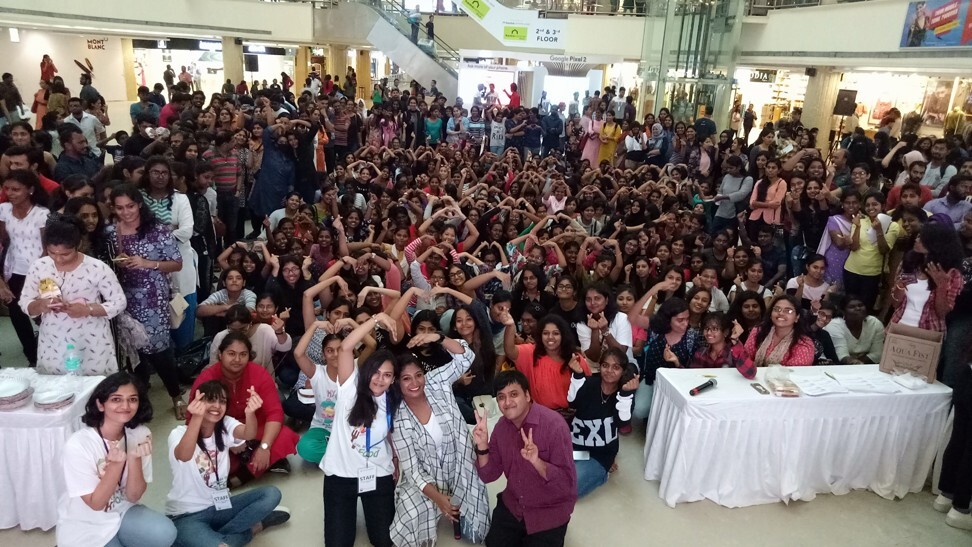
In this Indian city, locals love K-pop and K-dramas while Koreans love Indian food and weather – but not the doctors
- Chennai has the largest South Korean community in India, which has been growing ever since auto giant Hyundai opened its first factory near the city in 1997
- After trade and commerce came Korean food and then culture, with locals learning to love Korean music and TV, especially millennials
Weekend visitors to the popular Amma Naana supermarket in the upmarket Boat Club district of Chennai might think they are somewhere in South Korea. Groups of Koreans walk the aisles and stock up on Korean groceries such as noodles, sauces, seafood and vegetables.
Choi Bobae, 30, arrived in the southern Indian city in 2008 and now works for a trading company, while her husband has his own trading business there.
“I love Indian people and their warmth to foreigners, and I also enjoy Indian food, especially typical South Indian meals served on a banana leaf,” Choi says, adding that she also watches Tamil movies on Netflix and shops at the local malls.
South Korea’s tryst with Chennai, a coastal city in the state of Tamil Nadu, began in the late 1990s when the auto giant Hyundai established factories in the country. The first facility opened in Sriperumbudur, 40km (25 miles) southwest of Chennai, in 1997, and the company launched its first vehicle, the popular Santro small car, in 1999.

Other companies, including Samsung, LG, and Lotte, followed. Smaller firms dealing in automotive parts sprang up to support the conglomerates, and South Korean employees brought their wives and children to join them in Chennai.
“Today, Tamil Nadu is home to over 500 Korean companies, making the state rank among the largest Korean hubs in India, and Chennai has the largest Korean expat community in India with over 5,000 Koreans,” says Kwon Young-seup, South Korea’s consul-general in the city.
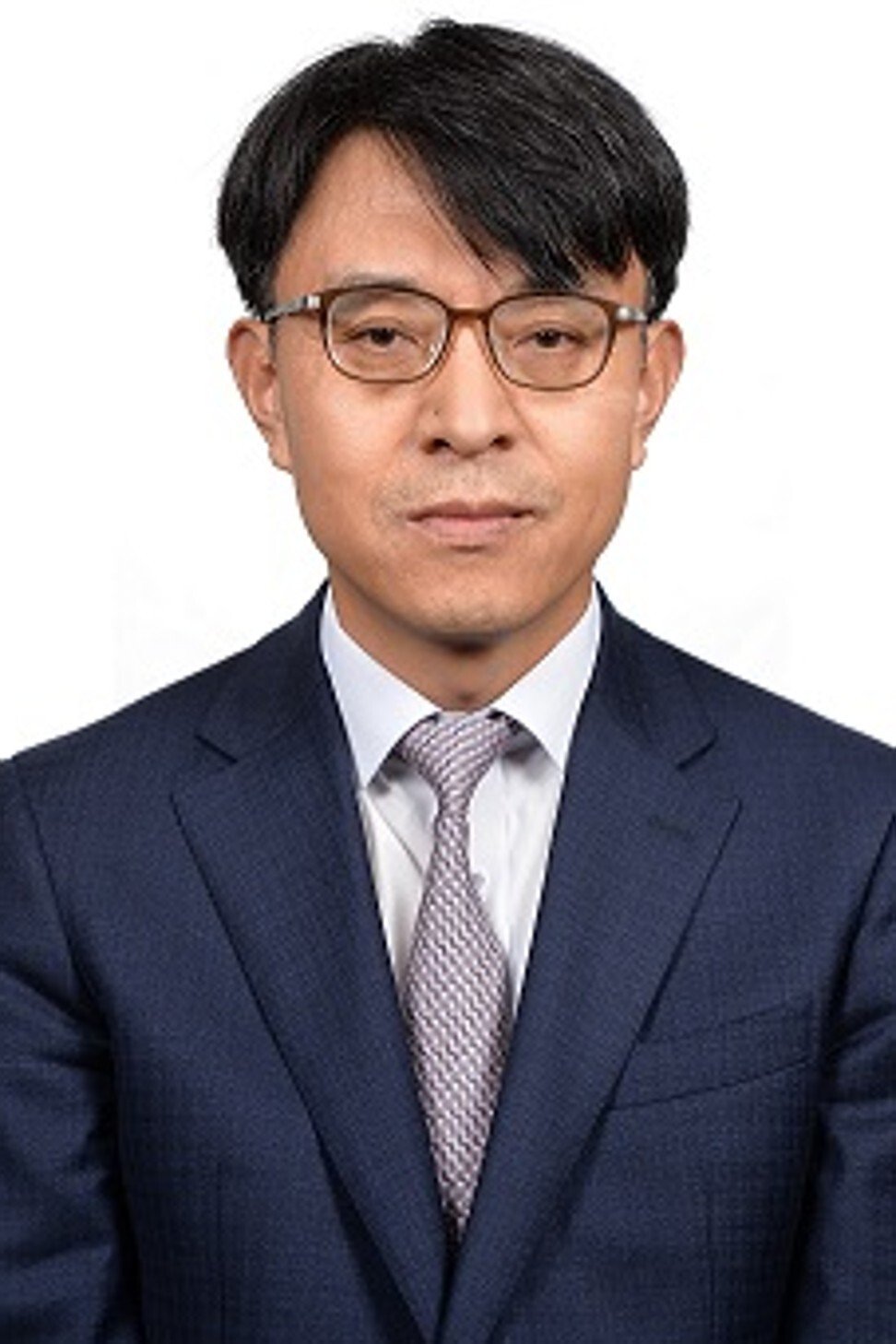
Sriperumbudur, a hub of the manufacturing companies, is a mini Korea town, with Korean restaurants and grocery stores and signs in the Korean language. Most corporate expatriates spend three to five years in India and are supported by firms like Global Adjustments, which provides relocation advice and help.
Most of the parents are happy that their stint in India helps their children learn English, and prefer to send their children to international schools, while the executives flock to the city’s golf courses on weekends.
Kwon started his stint in Chennai earlier this year, during the Pongal harvest festival, one of Tamil Nadu’s most important celebrations.
“My family and I appreciate living in one of India’s safest cities, with relatively less air pollution and a good sea breeze. I only wish the quality of the water was better. We would love to just open our taps and drink from them,” he says, adding that though he knew Chennai was regarded as “the Detroit of India”, he discovered it was also a big IT hub.
Provisions can be bought from shops including the Seoul Store, which sells popular Korean snacks, imported frozen foods such as tuna, and the favourite thick Neoguri-brand noodles.
The Young Doo restaurant, with televisions beaming in news reports from South Korea, is in the quiet Chennai neighbourhood of Kotturpuram, and serves everything from banchan (little bowls of cabbage kimchi) and pickled radish to comfort foods such as fish cake stew and delights including spicy grilled pork belly, along with the Korean liquor, soju.
The ancient city of Chennai has absorbed Korean culture and learned to love it. Korean pop music, television series, video games and fashion are popular among the locals, especially millennials, with fan clubs springing up across the city.
The InKo Centre, in the green Boat Club district, is a not-for-profit culture and information venue with a small Korean cafe. Supported by local and South Korean companies including Hyundai, InKo runs English-language classes for Koreans and Korean language classes for Indians.
Theatre, yoga, ceramics and taekwondo are also available, as well as movie screenings, cultural performances and culinary evenings.
“Although India and Korea at first glance may look like chalk and cheese, you realise upon deeper and closer examination that we have many things in common,” says InKo director Rathi Jafer. “From similarities in terms of words and sentence structures between Tamil and Korean, to percussion and folk music performing traditions, dance forms, societal structures and ritualistic practices, there is incredible synergy between these two cultures.”
Ramjhi’s love affair with the country started in 2014. He used to watch Japanese anime and films, and when he started watching Korean dramas online, he was hooked. He then took a six-month immersive trip to South Korea and started learning the language.
He says K-pop and K-drama series are very popular among Indians, because of their eye-catching style, interesting storylines, fashion and music. “Ninety-five per cent of our club is composed of women … I know that many Indian men love K-pop in secret but think it’s not macho and don’t want to reveal it.”
In July 2019, Chennai hosted the finals of a nationwide K-pop contest, which saw 17 teams from across India taking part, with singers performing popular songs to a packed audience.
Ishana Chatterjee, 12, is a bubbly student who is crazy about K-pop, like many of her friends. “I love watching these videos with subtitles because of their fashion, style and the way the bands perform,” she says. “I am now interested in learning the Korean language too, as I have picked up many words just watching the videos.” She recommends BTS, her favourite K-pop group.
South Korean television dramas also have a huge following in the city. “There are many similarities in Korean and Tamil culture, like respect for elders, and these cultural traits are reflected in Korean dramas and films,” says Ranee Valliappan, 57, a Chennai homemaker.
“A friend in Bangalore recommended that I watch Korean serials on Netflix, and I started with Boys Over Flowers,” says Valliappan, describing a plot involving a poor girl who gets to know four rich boys.
“It was the start of my love affair with K-drama, with serials like Crash Landing on You and What’s Wrong with Secretary Kim, which have handsome actors, lovely locales, and give me glimpses into another Asian culture, fashion and language, with uncannily similar words to the Tamil language, like appa [dad] and amma [mum].”
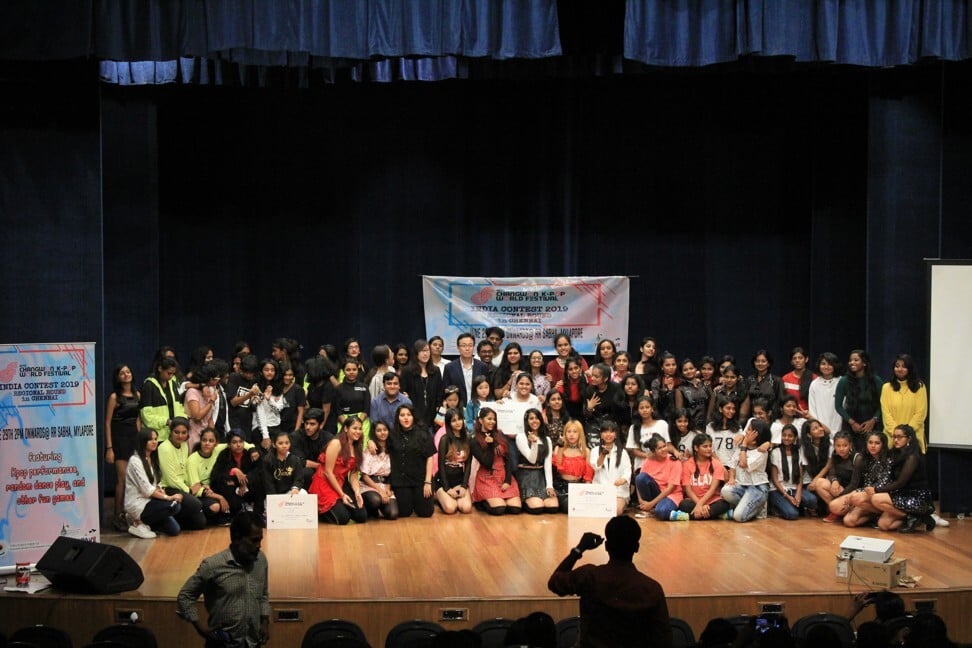
Jo Sang-hyun, president of the Korean Association in Chennai, also owns one of the city’s largest Korean restaurants. “I love Chennai,” he says. “It’s the kind of city where you can take security and safety for granted. What we Koreans find difficult here is small things like home repairs or electronic failures, where the workers don’t keep promises and delay their work. This extends to even professionals like doctors, who don’t keep their time of appointment.
“As an association, we help Koreans to settle down in the new city and understand local culture, and we also help the local community in disasters like floods and storms, and work with local orphanages.”
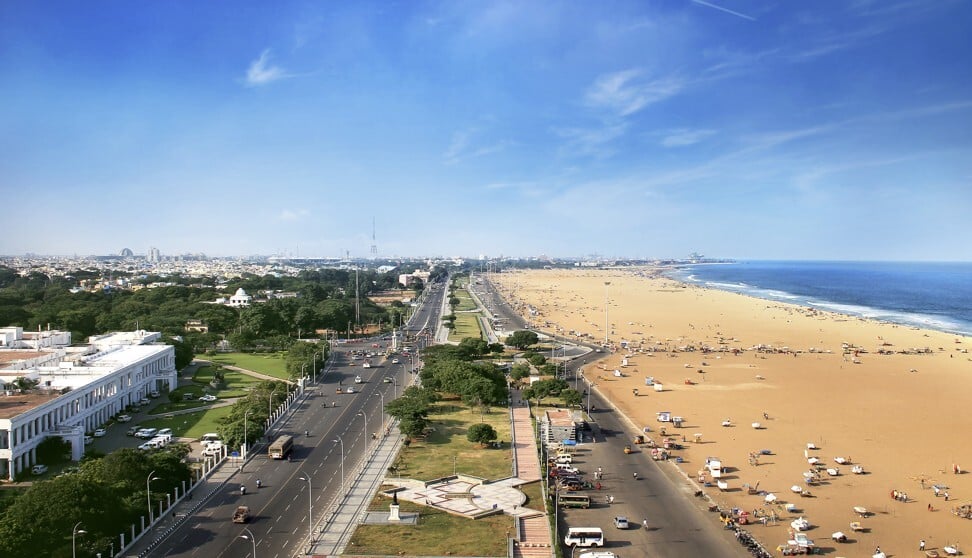
Park Cheor-won, 35, arrived in Chennai four years ago to work for a Korean electronics company. He says he loves Indian food – dosas, idli and biryani – playing golf on the weekends, and going to Korean church on Sundays with his friends. Best of all is surfing at the beaches of the nearby town of Kovalam with his Indian friends.
“I really love living here,” he says. “Even the warm weather is lovely.”
